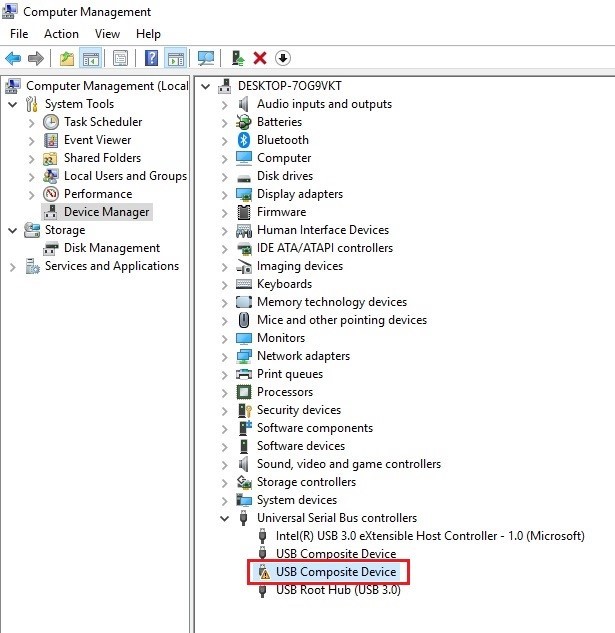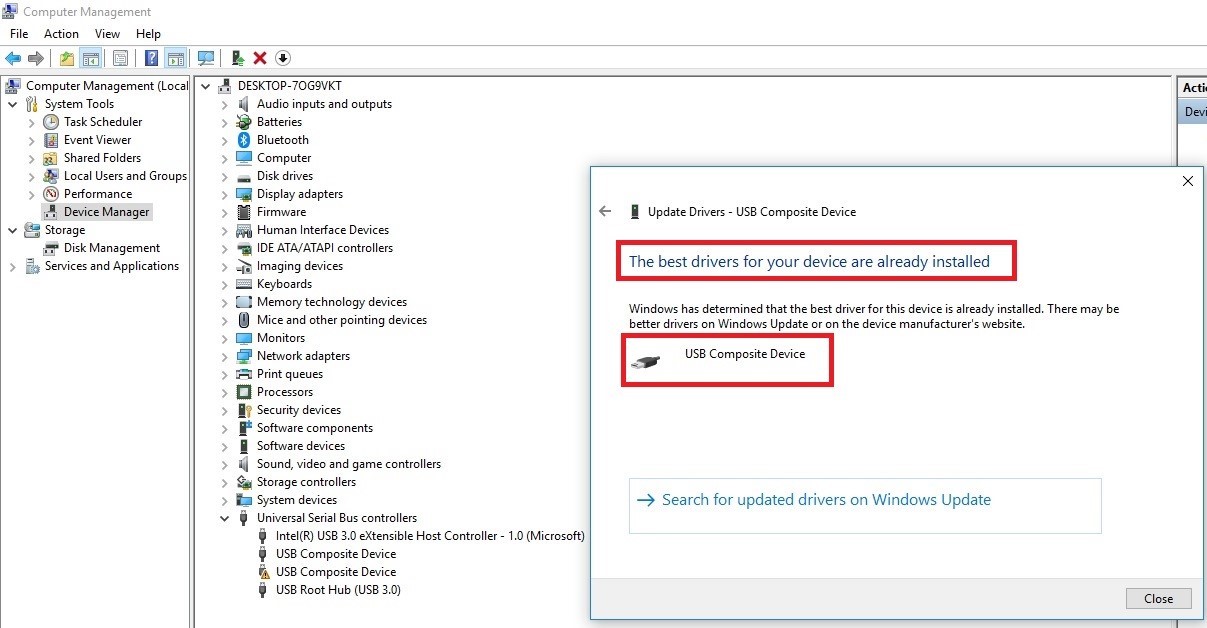Hi,
This is regarding the custom board having TM4C1294KCPDT on it. There is some issue with the USB COM Port drivers. Windows 10 detecting the COM as "USB Composite Device" and If i tried to update the drivers it shows error "The best drivers for your device are already installed".
Kindly suggest how to resolve this issue, so that I can have proper COM port in device manager.
Below are the screenshots for your reference:







